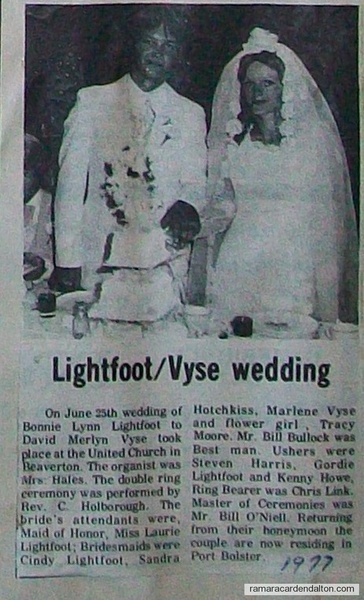Admin
THE GRAHAM HOMESTEAD
Andrew Graham arrived in Canada at the age of four. His branch of the clan had come from Scotland to Ireland and to Upper Canada, the Grahams settled in Reach in 1825 where three of five sons became landowners.
Fifty years pass to find Andrew and his wife Ann (Buchanan), staunch Presbyterians, established in a comfortable home on a good farm near Port Perry. Occasional visits, with relatives in Dalrymple, influenced their moving to Carden in hopes of greater opportunities for five sons and their only daughter, Alice who was eight. →">Continue reading
Orillia Packet and Times November 28, 1958 Brechin
BRCHIN FIREMEN BATTLE ALL NIGHT
Seven persons are homeless and two main street stores destroyed as the result of a fire of unknown cause which last night drew dozens of persons to this village on Highway 12, some twelve miles east of Orillia. →">Continue reading
DUNCAN TURNER FARM STORY
BY GRACE DEVERELL
Mr. Turner’s maternal grandmother came from Ireland. His mother, the former Mary Kennedy(1836-1820} lived in Lindsay until her marriage to his father, Mr. John Turner (1836-1922) who came from the Lowlands of Scotland. →">Continue reading
Note: St Columbkilles records of baptisms, weddings and deaths, legal records, census records, newspaper articles etc., were used to verify information.
The first recorded names in the Cleary ancestry are that of William Cleary and Mary O’Rielly, my G.G. Grandparents. They were the parents of Michael-1- Cleary and William-2- Cleary. William-2- and his wife Nora Ryan were my G. Grandparents. It would appear that William-1- and Mary, sons Michael-1-, William-2- and his wife Nora Ryan, immigrated to Canada in 1858 and they show up in the 1861 Mara census. Michael-1- married Catherine Smith in St Columbkilles on Jan 6, 1869 and the record indicates that the Clearys’ were from County Tipperary Ireland. →">Continue reading
From The Land Between- LeCraw
Services had been held in the school house. With a minister in Sebright, it was possible to have regular services and people wanted to have a regular church building.
Thomas Alfred Lamb, ( Coach Driver) born abt. 1835 Islington District, Middlesex, England. son of Samuel Lamb (Grocer). Married Matilda Maria Field, April 16, 1862 in West Ham, Essex County, England. Matilda Field was born April 16, 1842 in Newbury, Berkshire, England. They had 3 children Frederick, Samuel and Thomas. Thomas, Matilda’s husband, died Sept. 1870 of smallpox in Bethnal Green, England. →">Continue reading
Ancient History first
It is reported the McNamees were Bairds to the O’Neil clan-an ancient tribe in Northern Ireland.–(from the Book of Kells)– Actually being the Baird was better than being the king. The kings could be deposed or murdered but the Baird were never mistreated because they were the keepers of the oral history. These Bairds were noted for their memory, wit and sarcasm. This apple has traveled many miles →">Continue reading
